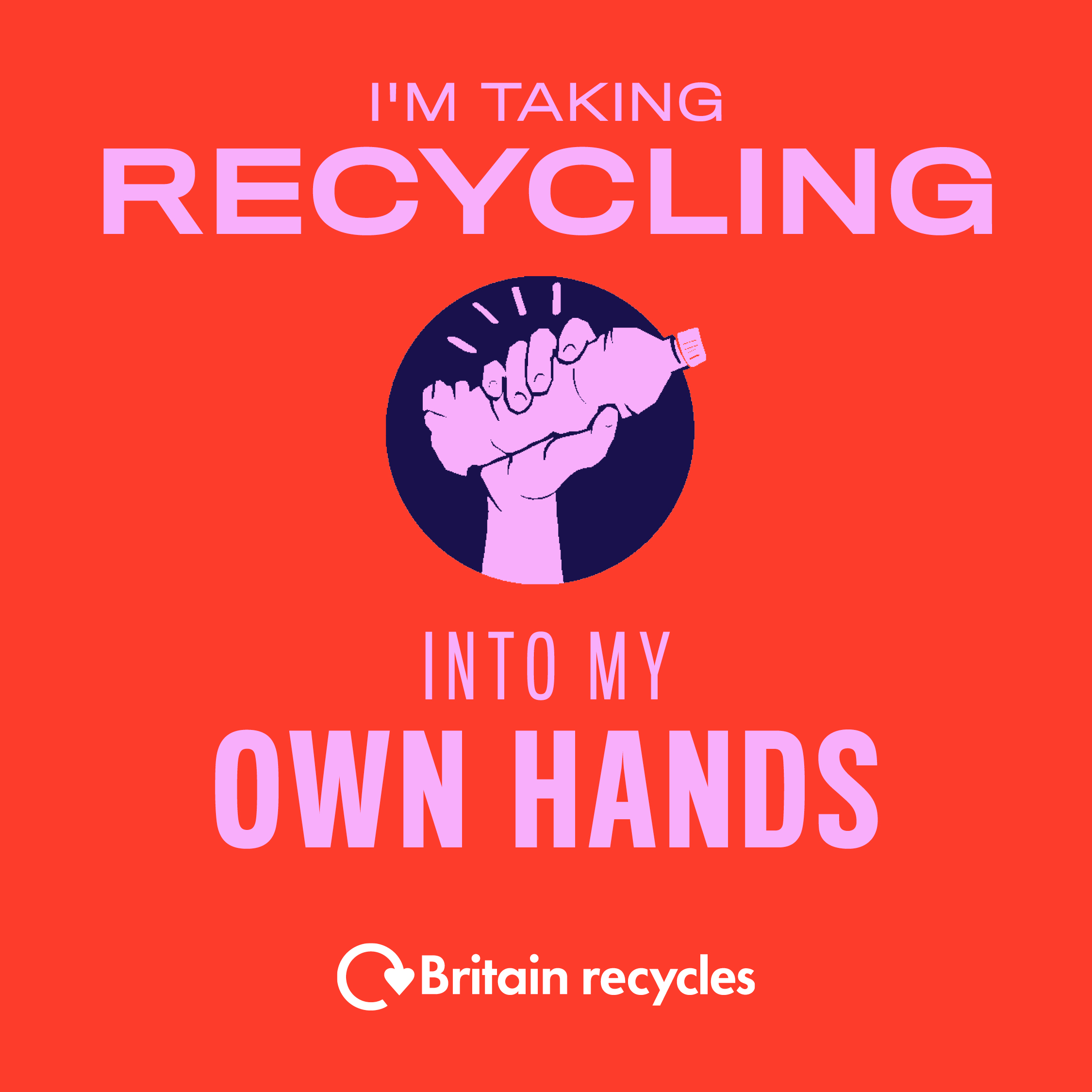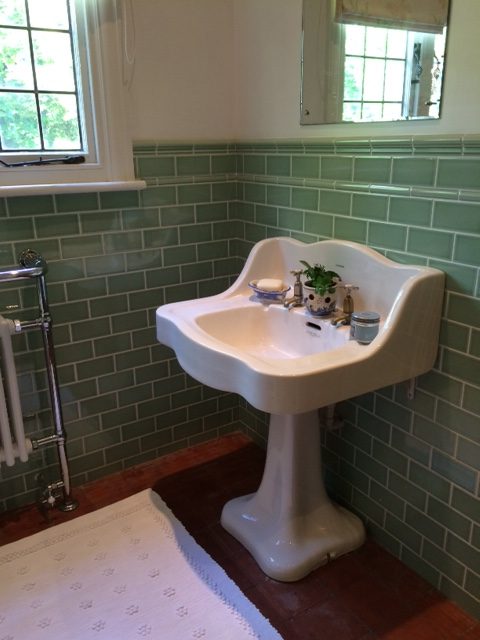A Home Less Wasteful
 The slogan for 2019’s National Recycling Week was, “Recycling. It’s In Our Own Hands” with the aim of encouraging us all to take more responsibility for the waste we produce. Although many of us are on a journey to living a more eco-friendly and sustainable way of life, moving home can be a particularly difficult time to act sustainably – we all tend towards an attitude of ‘out with the old and in with the new’. But, the ways in which we choose to renovate, decorate and furnish our homes can collectively have a major impact on achieving environmental goals.
The slogan for 2019’s National Recycling Week was, “Recycling. It’s In Our Own Hands” with the aim of encouraging us all to take more responsibility for the waste we produce. Although many of us are on a journey to living a more eco-friendly and sustainable way of life, moving home can be a particularly difficult time to act sustainably – we all tend towards an attitude of ‘out with the old and in with the new’. But, the ways in which we choose to renovate, decorate and furnish our homes can collectively have a major impact on achieving environmental goals.
With this in mind, this month’s blog discusses a few thoughts and ideas on reducing waste without dispensing with the style, and looks at some great local businesses and initiatives that are doing their bit to help.
1. Decorate for the Long-term
 Throw away culture extends to all aspects of our lives including the way in which we decorate and furnish our homes. There really is too much ‘stuff’ in the world, so instead of thinking about home décor as ‘fast fashion’, try to furnish your home with pieces that are well made, you won’t become fed up with and that will endure.
Throw away culture extends to all aspects of our lives including the way in which we decorate and furnish our homes. There really is too much ‘stuff’ in the world, so instead of thinking about home décor as ‘fast fashion’, try to furnish your home with pieces that are well made, you won’t become fed up with and that will endure.
When moving home, avoid buying new. Try upcycling furniture you already own to fit your new surroundings or restoring inherited pieces that will go on to become family heirlooms. Luckily, these days decorating using vintage, antiques or just ‘second-hand’ items in your home is chic and allows you to express your personality and create an individual look. There is plenty of inspiration too in magazines and on platforms such as Instagram.
Antiques by their very nature are green. They are generally better made than modern equivalents, have already stood the test of time and recycling the past in this way does not use new resources. Searching for items with a history and a story to tell can also be much more rewarding than shopping on the high street.
 Why limit yourself to second-hand furniture? If you are considering remodelling your bathroom or kitchen, think about using salvaged sanitary ware. Reclamation yards and online auction sites are full of good quality bathroom and kitchen fittings that with a bit of imagination can create designer looks for the fraction of the cost.
Why limit yourself to second-hand furniture? If you are considering remodelling your bathroom or kitchen, think about using salvaged sanitary ware. Reclamation yards and online auction sites are full of good quality bathroom and kitchen fittings that with a bit of imagination can create designer looks for the fraction of the cost.
Auction websites, antique auctions, reclamation yards and council recycling initiatives, are full of treasure that were destined for landfill and well worth visiting. We are blessed with plenty of excellent local hunting grounds. Try ‘Rogers Jones Auctioneers’ in Cardiff, ‘Too Good To Waste’ in Aberdare, Ynyshir and Treorchy, and our personal favourite, the very friendly and quirky Beacons View Reclamation, Hirwaun Industrial Estate, Rhigos.
Also, don’t forget that charitable initiatives are also great places to donate any of your unwanted items to.
2. Create a Circular Mindset
Most of us try to be good citizens and put out our recycling for the weekly collection, but how many of us think about what happens to those materials next? The American environmentalist and actor, Ed Begley Jr said, “If you’re not buying recycled products, you’re not really recycling.” This circular mindset is important and buying and using products made from recycled waste raw materials in our homes is a great place to start.
Creating beautiful and useful items from raw waste is something that more and more designers and manufacturers are challenging themselves to do. There are plenty of small homewares available made from recycled textiles, plastic or glass (great for sustainable gifting, too). But also consider using recycled waste products for larger items such as bathroom tiles or kitchen worksurfaces. As an example, British surface and tile maker Alusid (www.alusid.co.uk), make beautiful products from glass, ceramic and mineral skip waste.
3. Can you Mend It?
 All over the world a small revolution is going on – The Repair Café. Initiated by Martine Postma in Amsterdam in 2009, the idea is about free meeting places where people can share knowledge and skill to repair things together. It is also about appreciating individuals with practical knowledge and holding on to repair skills that society is quickly losing.
All over the world a small revolution is going on – The Repair Café. Initiated by Martine Postma in Amsterdam in 2009, the idea is about free meeting places where people can share knowledge and skill to repair things together. It is also about appreciating individuals with practical knowledge and holding on to repair skills that society is quickly losing.
Here in Wales, there are lots of similar initiatives springing up all over the place. If you have small electrical items, toys or furniture that is broken, or clothing or soft furnishings that need mending or altering to fit new surroundings, consider visiting your local Repair Café before throwing them out. You can have your item mended for free, share knowledge, boost your own skill levels and have a cuppa at the same time! See www.repaircafewales.org for details of upcoming events including regular events in Pontypridd, Neath and various locations around Cardiff, Swansea and Newport.



